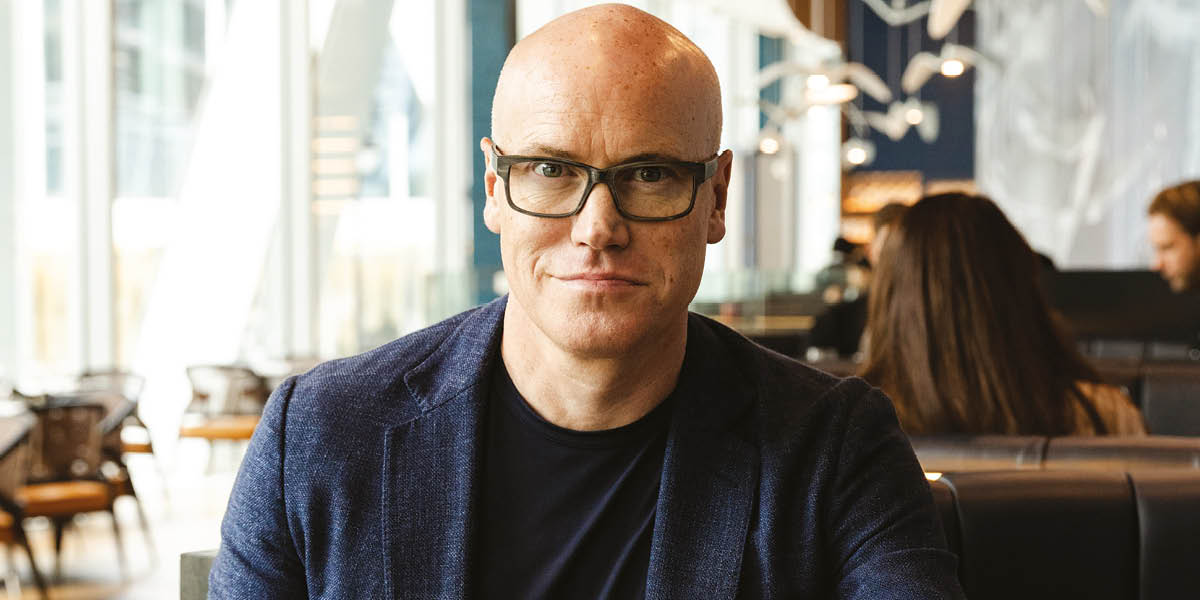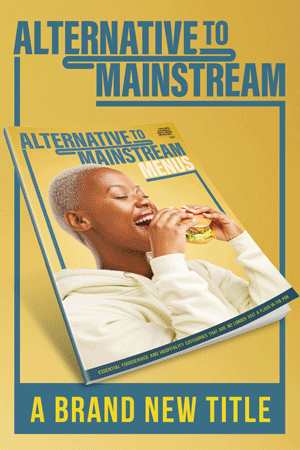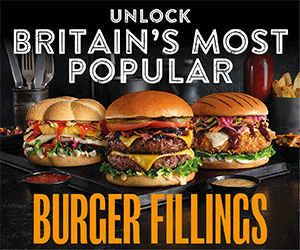Feature: M is for 'Making Change'

When Rare Restaurants committed to exclusively serving carbon-neutral beef across its estate, it was clear the company was serious about upholding ethical and sustainable business practices. Dine Out editor Genna Ash-Brown caught up with CEO, Martin Williams, to discuss a hospitality group determined to leave a positive mark on the world
The business world has a lot to answer for in the global climate crisis. In 2020, emissions from the seven greenhouse gases covered by the Kyoto Protocol were estimated to be 405.5m tonnes carbon dioxide equivalent nationwide. People talk about a ‘brighter’ or more ‘sustainable’ future, but the reality is that we are fighting to maintain any sort of future at all. That’s why our government (along with many more the world over) has committed to net-zero CO2 emissions by 2050.
It’s estimated that hospitality is responsible for 15% of the UK’s harmful greenhouse gases. While sustainability is higher up the corporate agenda than ever before, many operators, it must be said, should be doing more. It’s safe to say that Rare Restaurants – owner of 17-strong steak-based concept Gaucho and three-strong ‘gastro playground’ concept M – doesn’t sit within this bracket.
“Our first carbon-neutral restaurant was Gaucho Charlotte Street in 2019,” states CEO, Martin Williams as we chatted over Zoom. “We went 100% carbon-neutral in April. Then, Covid happened, but we opened our first new 100% carbon-neutral restaurant in Scotland in 2021. We’re hoping to completely eliminate carbon emissions from our meat and other foods, as well as our supply chain, by 2024.”
These are huge and admirable goals that require monumental change at a fundamental level. So where did it all begin?
A rare history
Williams claims his love of food was first nurtured in the family home. He spent long, happy afternoons baking with his mum from the age of three. As one of five kids, mealtimes required a lot of preparation and an equal dose of love, with each family member taking their turn to cook, no doubt perfecting their signature dishes over the years of practice.
“My love of hospitality grew when I was a student,” he tells me from M’s recently opened site on Canary Wharf. He smiles and nods in thanks as a mystery hand, its owner out of shot, delivers a coffee to his table. The soft beat of background music underlies our conversation, while the irregular clinks of cutlery remind me that staff are already hard at work, busy preparing for service. “I was working in hotels, restaurants and bars and, when I got to 23, I decided that I wanted to do it full-time. I wanted to make a career out of hospitality and match that passion with a job.”
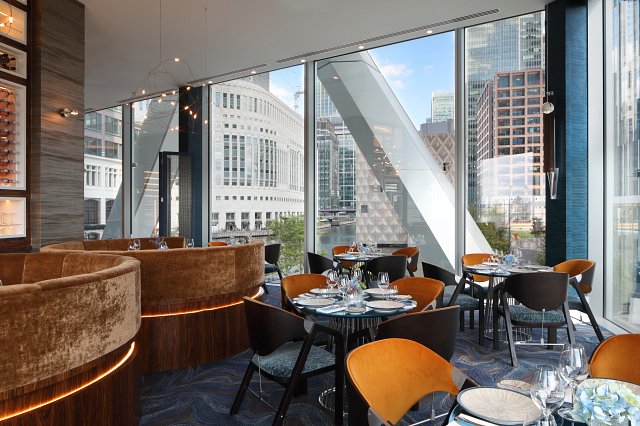
The M Canary Wharf interior, designed by René Dekker
Williams’s history with the company he heads up today began with Gaucho in 2005, before M had been created and thus pre-dating the Rare Restaurants group. He stayed with the brand for nine years, working his way up to the role of managing director. “I did a lot of travelling in that time,” he adds. “I wanted to experience the world’s best hospitality venues, so I went on a quest to the 50 best restaurants at the time, really trying to learn more about international cuisine. That’s when the idea to leave Gaucho and open my own restaurant manifested itself. It was the result of a 10-year global odyssey where I had been inspired by so many restaurants, wineries and bars.”
Living and learning
The idea Williams speaks of is the ‘gastro playground’ M – a fast-growing concept designed to host what the CEO describes as “gastronomic experiences”.
“It’s for a community of people who love food, wine and cocktails but who also don’t take themselves too seriously,” he explains. “It’s hard to come up with the right word to describe it – it’s sensory and flavourful. There are lots of playful elements – events and activations that make the restaurant very accessible. From wine machines and wine tasting experiences to things like our steak roulette. We try to make it an engaging experience for guests.”
M’s a la carte menu is eclectic and diverse, offering small, large and sharing plates that are globally inspired. From the Yellow Fin Tuna Tataki small plate (£16) to the Black Gnocchi large (£16) and the 1 kilo International Beef sharing platter (£140) showcasing quality cuts from the USA, UK and Argentina, it’s clear from the off that the concept is well travelled. “If you love wine and the arts and culture, you’ll be like a kid in a sweet shop here. This is your very own playground,” he adds.
M was coming to fruition in 2019, but Gaucho was struggling, having fallen into administration one year prior. The investors who stood by the concept asked Williams to jump back on board and, in his new position as CEO, the Rare Restaurants group was formed. Both companies had now been brought together under a parent group.
“The biggest learning curve during that period was going from Gaucho, which was a relatively protected environment, to going solo with M,” he reminisces. “I had this incredible freedom where I could unleash all this creativity, but for the first few months, I didn’t know whose approval I needed and for what. You realise very quickly that you don’t need anyone’s approval. That process was liberating, actually. But you know, then you open and have to manage cash flow and personnel and the responsibility is huge. I’ve never had more responsibility than being a start-up entrepreneur. We’ve got all these restaurants and 1,000 staff and I was responsible for their livelihoods. In a post-Brexit environment and in the midst of a pandemic, having invested millions of pounds from my family and friends into the business when there was a clear lack of confidence in the sector at the time, the pressure was real. That sometimes made it difficult to retain my creativity and remain a great leader.”
Better business, for people and planet
But Williams firmly believes that tricky teething period shaped him as a CEO. As a company, Rare Restaurants strives to take good care of its people – something that became abundantly clear throughout the challenges of the pandemic. “We protected all of our staff and kept all of them employed,” he states with pride. “Our executive team took pay cuts so we could top up salaries. I think we led by example, wonderfully, when a lot of companies in our industry, who claim to be good employers, actually behaved terribly towards staff, laying them all off and only bringing them back when furlough was announced.”
Taking charge during this period of adversity contributed to Williams’s forward-thinking nature. He quickly invested time and resources into the areas he felt mattered most, creating what he calls a “mental health journey”, designed to offer support as well as stimulate both psychological and physical engagement, for the benefit of all employees. “That meant that when we did open, we were fully staffed with a highly motivated team. I think we were therefore able to capture market share over the last 16 months, and the restaurants have been amazingly successful.”
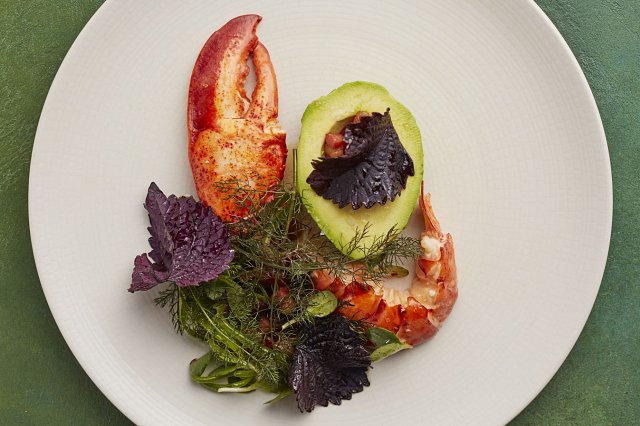
Lobster avocado, M Canary Wharf
This clear, unfaltering altruism extends beyond the Rare Restaurants family, evidenced in the group-wide decision to switch to carbon-neutral beef. “We want to be driven by shared success, passion and pride, but it’s also very important to us that we have integrity,” he notes. “We’ve got a lot of impact projects on the go, one of which is becoming carbon-neutral. We could have done that the easy way by just buying carbon credits but that just doesn’t align with our values,” the CEO explains. Instead, the group launched 11 international projects, including reforestation and initiatives that protect entire communities from the very real threats of modern slavery and sex trafficking. “We work with a charity partner called Not For Sale which specialises in these issues. It’s a good example of our approach to things which is very holistic and requires constant sense checking.”
For any business leader making a decision, there’s likely to be a cost or profit consideration, but Williams and the Rare Restaurants team weigh up the impact on people in equal measure. “We ask ourselves: how will this affect staff? How will it affect our guests? How will it then affect the planet? The generation currently in hospitality want to be in an environment where they can feel proud of where they work, where they know it’s carbon-conscious or environmentally aware, which is something we’re also now seeing more and more in guests.”
The group is ahead of the curve with its resounding planet-positive mindset, setting the bar for ethical standards not just in hospitality, but in the world at large. When I ask Williams why other restaurant chains have been slow to follow suit, his response is as compassionate and considered as you might expect.
“Everyone’s on their own journey,” he says. “It really was a priority for us in terms of our ambitions and what we wanted to achieve, from a conscience- or values-led perspective, as well as a business-led perspective,” the CEO concludes. “When I re-joined Gaucho in 2019, I came with a three-year plan (which became a four-year plan, what with the pandemic). But one of my listed ambitions involved the impact we would have on society and the planet, as well as our people and our ability to create a sense of community. Others might not have the same priority or ambition.
“Eventually they won’t have a choice, so they might as well jump on board. But it’s better to be joining from a place that’s authentic than doing something just because you’re told to. If everybody in hospitality had the same approach, the impact would be phenomenal.”


